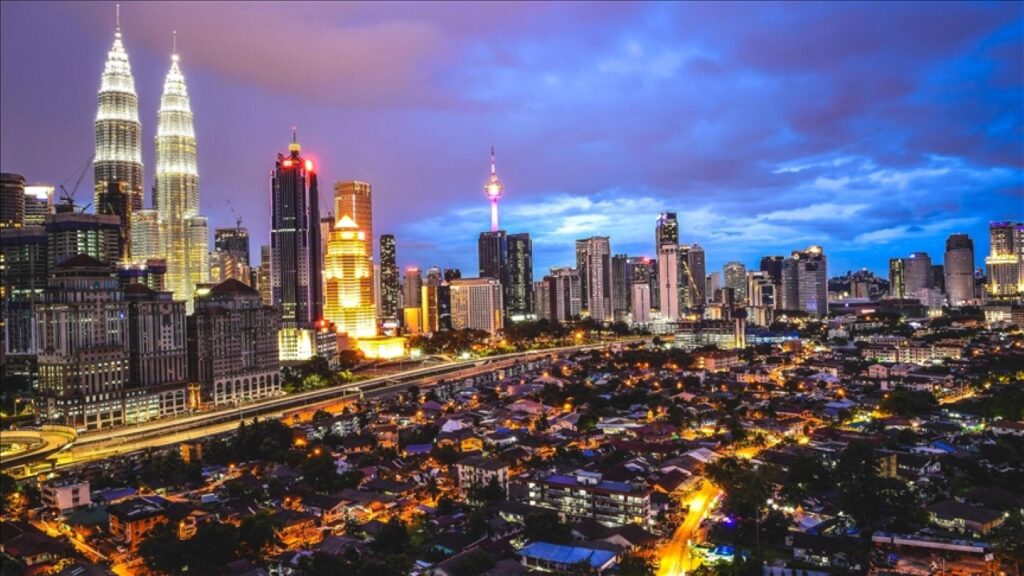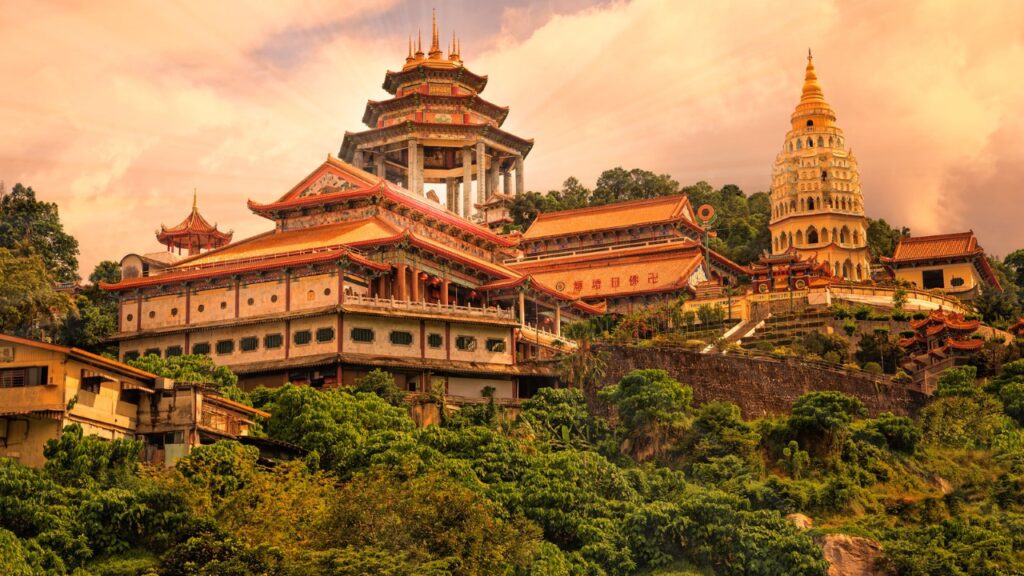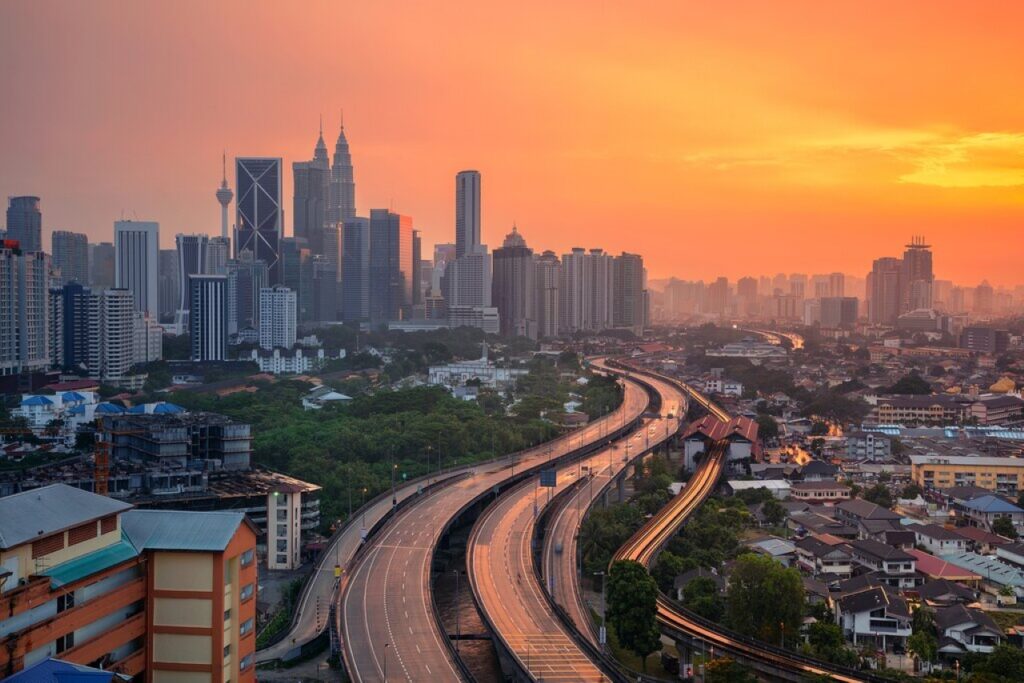Relocating to a new country brings a mix of anticipation and challenges. As you prepare to call Malaysia your new home, let Pathfinder Relocation Services be your guide. As a trusted partner of the Reloc8 Asia Pacific Group, Pathfinder stands out with its commitment to ensuring every expatriate feels at home.
With Malaysia’s diverse landscapes and bustling cities, there’s a niche for everyone. Whether you’re eyeing the urban hustle of Kuala Lumpur, the tranquil beaches of Langkawi, or the historical charm of Ipoh, Pathfinder’s comprehensive guide is your roadmap.
Trust in Pathfinder’s legacy of guiding countless individuals and families through their Malaysian relocation. Explore their resources and set forth on your Malaysian journey with confidence. For more insights into their services, visit https://www.pathfinder-relocation.com/.
SECTION 1: UNDERSTANDING THE BASICS

What It’s Like to Live in Malaysia
Living in Malaysia offers a diverse and culturally rich experience. It boasts a blend of Malay, Chinese, Indian, and indigenous influences, reflected in its festivals, cuisine, and traditions. The country offers stunning natural landscapes, a vibrant culinary scene, modern cities like Kuala Lumpur, affordable living costs, a tropical climate, and a mix of languages. Overall, Malaysia provides a unique blend of culture, modernity, affordability, and natural beauty for residents and expatriates alike.
Cultural Differences
Foreigners relocating to Malaysia should anticipate and embrace a rich multicultural society, influenced by Malay, Chinese, Indian, and indigenous traditions. Respecting and understanding various religions, including Islam, Buddhism, Hinduism, and Christianity, is crucial. Adapting to social customs such as removing shoes indoors, using the right hand in interactions, and showing deference to elders is important for cultural integration. Exploring Malaysia’s diverse food culture, which includes spicy dishes and vibrant street food, offers a delightful experience. While Bahasa Malaysia is the official language, English is widely spoken alongside various local dialects in specific regions. Being mindful and open to these cultural differences will aid in a smoother transition and an enjoyable living experience in Malaysia.
Languages
In Malaysia, the primary languages spoken are Bahasa Malaysia (the official language), English, Chinese dialects (such as Mandarin, Cantonese, and Hokkien), and Tamil. Basic proficiency in Bahasa Malaysia proves advantageous for everyday interactions, particularly in government settings, local markets, and with Malaysian residents in most areas. English holds significant importance in business, education, and as a widely used second language, especially in urban regions and tourist hubs, easing communication for foreigners. While Chinese dialects (Mandarin, Cantonese, Hokkien) and Tamil are prevalent within specific communities, knowing these languages isn’t imperative for day-to-day communication, but familiarity with some phrases may facilitate better connections within those specific cultural groups. Overall, having a grasp of Bahasa Malaysia and English is highly beneficial for navigating daily life and interactions in Malaysia.
Economy and Job Market
The Malaysian economy expanded by 3.3% in the third quarter of 2023 (2Q 2023: 2.9%). Growth was anchored by resilient domestic demand. Household spending remained supported by continued growth in employment and wages.
According to Malaysia’s Statistics Department, the labor market in the country maintained a positive trend through the second quarter of 2023, significantly boosting demand for workers. The overall number of employed people increased by 208,100, bringing the total to 8.83 million.
SECTION 2: COST OF LIVING AND LIFESTYLE

Cost of Living
In comparison to several Western countries and neighboring Southeast Asian nations, Malaysia generally offers a more affordable cost of living. Housing, healthcare, food, transportation, and everyday expenses are often more economical in Malaysia than in countries such as the United States, United Kingdom, Singapore, and Australia. While costs may vary depending on the region and individual lifestyle choices, Malaysia tends to be comparatively budget-friendly, making it an attractive destination for expatriates seeking a relatively lower cost of living without compromising on the quality of life. However, specific expenses can fluctuate based on factors like city locations and personal preferences, so thorough research and consideration of various aspects are advisable when comparing Malaysia’s cost of living to that of other countries.
Lifestyle
The average lifestyle in Malaysia represents a harmonious blend of diverse cultures, modernity, and a relaxed pace of living. Malaysians cherish their multicultural heritage, celebrating Malay, Chinese, Indian, and indigenous customs through vibrant festivals, diverse cuisine, and traditional practices. Family values hold significant importance, fostering strong bonds and respect for elders within the community. Urban hubs like Kuala Lumpur offer modern amenities, bustling city life, and cultural diversity, while rural areas maintain a more traditional lifestyle linked closely to local customs and natural surroundings. Malaysians enjoy a range of leisure activities, from exploring nature reserves to savoring diverse local cuisine. This lifestyle embodies a balance between work and relaxation, upholding a strong emphasis on education, language diversity, and communal celebrations throughout the year.
Healthcare Services
In Malaysia, foreigners can anticipate a generally good standard of healthcare services that encompass both the public and private sectors. Public healthcare, while more affordable, might experience issues such as overcrowding and longer waiting times in certain facilities. On the other hand, the private healthcare system boasts modern facilities, well-trained medical professionals, and shorter waiting periods. Many private hospitals are equipped to cater specifically to medical tourists, offering world-class treatments at competitive costs. English-speaking medical staff are prevalent, easing communication for foreigners seeking medical assistance. Malaysia’s reputation for medical tourism is driven by its high-quality healthcare services, affordability compared to Western nations, and continual advancements in technology and expertise. Overall, Malaysia presents a favorable environment for foreigners seeking quality healthcare services at relatively affordable rates, especially within the private healthcare sector.
Educational System
The educational system in Malaysia for expatriate children includes public, private, and international schools. Public schools follow the national curriculum in Bahasa Malaysia, while private and international schools offer diverse curricula such as British, American, or International Baccalaureate (IB). International schools, favored by expatriates, emphasize English as the primary language of instruction and provide globally recognized education. These schools generally boast modern facilities, experienced teachers, and extracurricular activities. While public schools might be more affordable for locals, expatriate families often opt for private or international schools due to their English-based curriculum and alignment with global educational standards, albeit at higher costs. Major cities like Kuala Lumpur have a variety of international schools catering to expatriate communities, offering a range of educational choices for families seeking quality education for their children.
SECTION 3: LEGAL AND IMMIGRATION ASPECTS

Legal Considerations When Moving to Malaysia
When relocating to Malaysia, several crucial legal considerations are vital for expatriates. These include obtaining the appropriate visa or residency permit aligned with the purpose of relocating, such as employment, retirement, or investment. Securing a valid work permit or employment pass is essential for those moving for work purposes. Understanding property ownership regulations and tax obligations, including the local tax system and healthcare insurance requirements, is crucial. Additionally, expatriates should familiarize themselves with driving license validity, cultural sensitivities, and local laws. Seeking legal guidance or consulting immigration experts can help ensure compliance with Malaysian laws, facilitating a smoother transition and lawful residence in the country.
Process of Acquiring Work Visas for Professionals and Their Families
- Company Registration via ESD
- The company submits all related company information through the Expatriate Services Division (ESD), Immigration Department of Malaysia, at esd.imi.gov.my.
- Company Activation
- The Company Director signs the Letter of Undertaking (LoU) in front of Immigration and receives further access to the ESD’s portal services.
- Expatriate Application via ESD
- Pay the applicable fee and submit the application to the ESD with the required documentation.
- Online Endorsement & Sticker Delivery From MYXpats Centre
- Pay the applicable fee and submit the application to the ESD with the required documentation.
Processes for Setting Up a New Business or a Branch of an Existing Company
The company registration must be done at the Company Commissioner of Malaysia (SSM). Upon SSM registration, the company may proceed with ESD registration for EP and DP applications for expats.
Requirements for Permanent Residency or Citizenship
Residence Pass Categories
A person with family ties to a Malaysia citizen (Category 3)
- Husband/wife of a citizen;
- Biological child/step-child/adopted child to a citizen aged 18 and below;
- Divorcee/widow/widower to citizens with a biological child who is a Malaysian citizen;
- Biological mother/father to a Malaysian citizen;
- Mother/father-in-law to a Malaysian citizen holding a valid pass in Malaysia.
A person with family ties to a Permanent Resident of Malaysia (Category 4)
- Biological child to a Permanent Resident aged 18 and below;
- Husband/wife to a Permanent Resident.
Ex-Malaysians (Category 5)
- A Malaysian citizen who has voluntarily renounced their citizenship;
- A Malaysian citizen who has been deprived of citizenship.
Conditions to apply for a Residence Pass (Other Categories)
- The applicant must have a valid travel document or passport with a validity of at least six (6) months;
- The applicant has been staying in Malaysia on a valid long-term pass;
- For Category 3, the applicant has resided in Malaysia for at least three (3) years on a valid long-term pass;
- For Category 4, the applicant has resided in Malaysia for at least five (5) years on a valid long-term pass;
- The application must be sponsored by a Malaysian aged 21 years and above;
- For Categories 3 and 4, applications may be submitted to the nearest Immigration office or the Immigration Headquarters, Putrajaya;
- Applications for Category 5 must be submitted with original copies and photocopies of supporting documents to the nearest Immigration office or the Immigration Headquarters, Putrajaya;
- For Category 3, the applicant must be a divorcee/widow/widower to a Malaysian citizen who has been granted full or joint custody of the biological child by the relevant court of law;
- All photocopied documents issued by a foreign country MUST be certified by the corresponding foreign missions in Malaysia;
- Application in West Malaysia must be sponsored by a Malaysian citizen;
- Application in Sabah and Sarawak must be sponsored by a Malaysian citizen of Sabah or Sarawak origin;
- Both the sponsor and applicant MUST be present during the submission of documents at the Immigration office.
SECTION 4: BUSINESS CULTURE AND WORK ETHIC
Work Culture
The work culture in Malaysia is a harmonious blend of respect for hierarchy, relationship-oriented approaches, and a focus on collective teamwork. Valuing seniority and formalities, workplaces in Malaysia appreciate hierarchical structures and deference to superiors. Building strong personal relationships and networking is significant, influencing business interactions and decision-making. Collaboration and consensus-building within teams are prioritised over individual contributions, emphasizing teamwork and harmony. While punctuality is valued, there is often a degree of flexibility in schedules. Communication tends to be indirect and non-confrontational, favoring politeness and diplomacy. Employers are increasingly recognizing the importance of work-life balance and inclusivity, fostering diverse and culturally rich environments where celebrations of various cultural festivals are common practice. Understanding and respecting these cultural elements is crucial for successful integration into Malaysian workplaces.
Business Customs
Business customs in Malaysia diverge from those in some other countries in several aspects. The Malaysian business culture places a strong emphasis on hierarchy and formalities, valuing seniority and titles in the workplace more prominently than in some more egalitarian cultures. Relationship-building is paramount, often preceding formal discussions and requiring time to foster trust and connections. Communication tends to be indirect and polite, avoiding direct confrontation, which contrasts with more direct communication styles in certain cultures. Decision-making involves consensus-building and seeks input from multiple stakeholders, differing from cultures where decisions are made by individuals or smaller groups. Malaysia’s evolving work culture increasingly acknowledges work-life balance, adapting to accommodate flexible work arrangements to support employee well-being. Sensitivity to diverse religious and cultural practices, punctuality with a degree of flexibility, and the celebration of cultural festivals are also integral aspects of Malaysian business customs. Understanding and embracing these nuances is crucial for effective business engagements in Malaysia.
Typical Workday and Work Week
In Malaysia, the typical workdays spans from Monday to Friday, with standard office hours usually ranging from 9:00 AM to 5:00 PM or 9:00 AM to 6:00 PM. A one-hour lunch break between 12:00 PM and 2:00 PM is common, although some offices offer flexible lunch hours. Cultural breaks for tea and coffee, along with light snacks, are often integrated into the work routine, fostering informal interactions. While the workweek generally follows a five-day schedule, variations exist across industries, with some sectors operating on different shifts or schedules based on operational requirements. Additionally, there is a growing trend towards offering flexible work arrangements and remote work options to accommodate employees’ needs and support work-life balance, especially in larger cities.
Tips for Making Good Business Relationships
Establishing strong business relationships in Malaysia involves prioritizing personal connections and cultural understanding.
- Begin by investing time in building trust through personal interactions before diving into business discussions;
- Show respect for hierarchical structures by using appropriate titles and acknowledging seniority;
- Embrace indirect and polite communication styles while avoiding direct confrontation;
- Actively participate in social events and gatherings to nurture relationships beyond formal settings;
- Display cultural sensitivity by respecting diverse customs and traditions;
- Patience is crucial in consensus-building, as decisions might take time;
- Be punctual, but remain adaptable to schedule flexibility;
- Following up with a polite message after meetings reinforces your commitment to the relationship;
- Seeking local advice or guidance can also enhance your understanding of Malaysian business customs and facilitate smoother interactions.
Overall, prioritizing respect, patience, and genuine connections will pave the way for successful business relationships in Malaysia.
SECTION 5: HOUSING AND ACCOMMODATION
Commonly Available Accommodation
Various types of accommodations are available across Malaysia to cater to different preferences and budgets. Urban areas commonly offer apartments and condominiums with facilities such as security, parking, and recreational amenities. Terrace houses, arranged in rows with shared and private spaces, are prevalent in residential areas. Larger standalone properties, like semi-detached and detached houses, provide more space and privacy. Gated communities, which offer enhanced security and shared amenities, are popular choices. Additionally, serviced apartments offer convenience with inclusive services. Rental rooms, bungalows, shophouses, and student housing options are also available, each catering to specific needs and preferences. The availability and types of accommodation vary by location, offering a diverse range of choices throughout Malaysia.
Housing Prices Across Different Regions
Housing prices in Malaysia vary significantly across regions, with Kuala Lumpur (KL) and Selangor being among the most expensive due to high demand and urbanization. Prime areas in KL, such as Bangsar and Mont Kiara, command premium prices, while areas near KL in Selangor, such as Petaling Jaya, also boast relatively higher property values. Penang Island, especially in George Town and Tanjung Bungah, has seen rising property prices, particularly for sea-view condos and heritage properties. Johor Bahru, close to Singapore, has witnessed increased property interest, especially near the border and waterfront developments. Meanwhile, East Coast states like Kelantan and Terengganu generally have lower property prices, except for coastal area with beachfront properties and resorts. Cities in Sabah and Sarawak, like Kota Kinabalu and Kuching, exhibit varying property prices influenced by development, accessibility, and local demand. These prices fluctuate due to economic factors, government policies, and infrastructure development, necessitating local expertise for accurate regional insights.
Key Considerations When Searching for Housing
When searching for housing in Malaysia, several vital considerations shape the decision-making process.
- Start by assessing the location’s proximity to workplaces, schools, amenities, and transportation hubs to ensure convenience;
- Define a realistic budget that encompasses not just rent or purchase costs but also additional expanses like maintenance fees and utilities;
- Choose the type of accommodation that best suits your needs and lifestyle, whether it’s apartments, houses, condos, or other options;
- Evaluate available amenities such as security, parking, recreational facilities, and nearby services;
- Prioritize security by opting for properties in gated communities or those with robust security measures;
- Assess accessibility to transportation networks and roads for ease of commuting;
- Decide between furnished or unfurnished options and understand maintenance responsibilities;
- Consider the neighborhood’s ambiance, community activities, and proximity to essential facilities;
- Review lease terms or ownership regulations, particularly for foreign buyers;
- Stay updated on future developments in the area, as they might impact property values and daily life;
- Consulting local experts or real estate agents can provide invaluable insights and guidance throughout the housing search process, ensuring a well-informed and suitable choice aligned with individual needs and preferences.
Process of Purchasing a Property
The process of purchasing property in Malaysia involves several key stages.
- It begins with selecting a property on preferences and budget, engaging a real estate agent to assist in the search, and negotiating terms with the seller;
- Once an agreement in reached, a Sale and Purchase Agreement (SPA) is signed, accompanied by a deposit payment;
- Due diligence on the property is conducted, and if financing is needed, a home loan application is made;
- Upon approval, the remaining balance of the purchase price is settled, and the sale is completed;
- Stamp duty and legal fees are paid to transfer ownership, followed by the registration on the property transfer at the land registry office;
Legal professionals play a vital role throughout the process, ensuring compliance with regulations and safeguarding the buyer’s interests. Therefore understanding specific regulations for foreign property purchases is essential for a successful transaction.
SECTION 6: TRANSPORTATION AND CONNECTIVITY
Main Forms of Transportation
In Malaysia, transportation options encompass cars, motorcycles, public buses, taxis, ride-hailing services like Grab, trains (LRT, MRT, KTM), ferries, domestic flights, and motorcycle e-hailing services.
- Private vehicles offer flexibility, but traffic congestion affects travel times;
- Public buses are an affordable option, while taxis and ride-hailing services offer convenience in cities;
- Trains are efficient, especially the LRT, MRT, and KTM, although peak hours might witness crowding;
- Ferries link mainland and island destinations;
- Domestic flights facilitate swift travel between major cities;
- Motorcycle e-hailing services cater to short-distance travel.
Reliability varies, with trains and ride-hailing services generally being more dependable, while road-based transport might be affected by traffic congestion, impacting reliability, particularly during rush hours. Ongoing infrastructure improvements aim to enhance reliability and efficiency across Malaysia’s transportation network.
Internet and Mobile Connectivity
In Malaysia, internet and mobile connectivity are well-established, particularly in urban areas, with high internet penetration rates and widespread access to 4G and 5G networks. Multiple telecommunications companies provide reliable mobile internet services, while fixed-line broadband options include DSL, cable, and increasingly popular fiber optic connections, offering various plans based on speed and data allowances. Free public Wi-Fi is available in numerous locations such as shopping malls, airports, and cafes, enhancing connectivity options. While urban regions enjoy fast and reliable internet access, rural areas may experience slower or less consistent connections due to infrastructure limitations.
Nonetheless, the range of affordable internet and mobile plans caters to diverse user needs and budgets, contributing to Malaysia’s well-developed connectivity landscape.
Best Cities or Regions for Commuting to Work
Several cities and regions in Malaysia offer excellent commuting options for work.
- Kuala Lumpur’s city centre, despite traffic congestion, provides convenient access to the LRT, MRT, and monorail systems, with adjacent areas like Petaling Jaya offering good connectivity and residential choices.
- Cyberjaya and Putrajaya boast well-organized infrastructure and direct highway access, ideal for efficient commuting.
- Iskandar Malaysia in Johor Bahru is witnessing infrastructure development, facilitating convenient commuting within the economic zone.
- Penang’s George Town and Bayan Lepas regions offer good transportation options, while Subang Jaya in Selangor features a network of LRT, KTM, and major highways.
Choosing the best city or region for commuting factors in workplace proximity, access to public transportation, traffic conditions, and individual lifestyle preferences.
Accessibility to Main Business Hubs
The main business hubs in Malaysia, including Kuala Lumpur (KL) City Centre, Petaling Jaya (PJ), Cyberjaya, Putrajaya, Iskandar Malaysia in Johor Bahru, and Penang’s George Town and Bayan Lepas, are well-connected and accessible.
- KL, the primary business hub, boasts efficient connectivity via highways, LRT, MRT, and bus networks, linking various commercial districts.
- PJ, adjacent to KL, benefits from excellent connectivity, contributing to its prominence as a business area.
- Cyberjaya and Putrajaya, focusing on technology and administration, have well-developed infrastructure and direct links to KL.
- Iskandar Malaysia, with its strategic location and connectivity to Singapore, attracts businesses and investments.
- Penang’s George Town and Bayan Lepas, supported by highways and proximity to the airport, serve as vital business districts.
These hubs benefit from Malaysia’s robust transportation infrastructure, enhancing connectivity within and beyond regions and fostering economic growth and investment opportunities.
SECTION 7: SOCIAL INTEGRATION AND NETWORKING
Hospitality
Malaysia in generally welcoming to foreigners, fostering an environment of cultural diversity and acceptance. Its multiethnic society, comprising Malays, Chinese, Indians, and indigenous groups, contributes to a tolerant atmosphere. English proficiency, prevalent especially in urban areas, facilitates communication for expatriates. Malaysians are known for their warm hospitality and willingness to assist newcomers in adjusting to local customs. Established expat communities in major cities offer support networks, aiding integration through social activities and gatherings. Embracing Malaysia’s diverse culture and traditions, couped with the inclusive work environment in many companies, eases the transition for expats. Accessibility to essential services and established procedures for visas and residency permits further support foreigners seeking to live and work in the country. Overall, Malaysia’s inclusive and diverse society often provides a conducive atmosphere for foreigners to integrate smoothly.
Communities or Groups for Expats
Malaysia hosts diverse and established expatriate communities in cities like Kuala Lumpur, Penang, and Johor Bahru, offering support networks and social engagement for foreigners. These groups, such as ExpatKL in Kuala Lumpur, the Malaysia Expatriate Wives Association (MEWA), the International Women’s Association of Penang (IWAP), and the Johor Expat Group (JEG) in Johor Bahru, organize various activities, cultural exchanges, and social events to facilitate integration and connections among expatriates. Additionally, online platforms like Meetup.com and Facebook host numerous groups tailored to specific expat communities or interests, providing a virtual space for expats to connect, exchange information, and participate in social gatherings. These communities play a pivotal role in fostering a sense of belonging and support among expatriates living in Malaysia.
Socializing and Networking
In Malaysia, a plethora of socializing and networking opportunities cater to diverse interests and backgrounds. Expatriate communities and clubs, such as expat associations and cultural groups, organize social gatherings and events fostering connections among expats. Additionally, the country hosts numerous business networking sessions, seminars, and industry-specific meet-ups, offering platforms for professionals to network and collaborate. Sports clubs, fitness centers, and hobby-based groups provide avenues for shared interests and social interaction. Malaysia’s rich cultural landscape brings forth various cultural events, festivals, and art exhibitions, serving as meeting points for individuals keen on exploring local culture. Leveraging social media platforms and online communities enhances connectivity with like-minded individuals. Educational institutions host events and student clubs, providing networking opportunities for students and professionals in academia. Engaging in volunteer work and charity initiatives also offers chances to meet new people while contributing to societal causes. Malaysia’s diverse range of social and professional avenues facilitates meaningful connections and networking experiences for residents and expatriates alike.
Participation in Local Activities and Community Events
Engaging in local activities or community events in Malaysia can be achieved through diverse channels.
- Joining clubs or associations centered around hobbies, sports, arts, or cultural interests offers avenues for participation;
- Attending cultural festivals like Chinese New Year, Hari Raya, or local music and dance festivals provides opportunities to immerse oneself in Malaysian culture;
- Volunteering with charitable organizations, exploring online platforms such as social media groups or event listing sites, and visiting community centers or libraries for workshops and talks are excellent ways to connect with local events;
- Local hangouts like cafes sometimes host cultural nights or book clubs, facilitating interactions with locals and expatriates;
- Engaging with expatriate communities organizing social and community activities often leads to involvement in local initiatives, while participating in work-related events can also foster connections within the local community, enhancing the overall experience of living in Malaysia.
SECTION 8: DEALING WITH EMERGENCIES
Emergencies
Malaysia has established frameworks and agencies to respond to a range of emergencies, including natural disasters, health crises, and security incidents. The country’s emergency response system involves entities such as the National Disaster Management Agency (NADMA), the Royal Malaysian Police (PDRM), and the Fire and Rescue Department (Bomba). In the face of natural disasters like floods and landslides, the government and relevant agencies coordinate rescue efforts, provide shelter, and deliver aid to affected areas. Health emergencies, notably during the COVID-19 pandemic, prompt the mobilization of Malaysia’s healthcare infrastructure, with measures such as lockdowns, testing, contact tracing, and vaccination drives. The Royal Malaysian Police (PDRM) plays a vital role in ensuring public security and managing law enforcement during security-related incidents. Continuous training, community awareness, and resource allocation are essential for bolstering Malaysia’s emergency preparedness and response capabilities. For the most current and detailed information, individuals are advised to consult official government sources or emergency management agencies, as the situation may evolve.
Steps to Follow in Case of a Medical Emergency
In the event of a medical emergency in Malaysia, swiftly dial emergency services at 999 (or 112 from mobile phones) to request an ambulance, providing precise location details and the nature of the emergency. If feasible and safe, administer basic first aid while waiting for assistance. Transport the affected individual(s) to the nearest hospital’s emergency department if it is quicker or safer than waiting for an ambulance. Ensure you carry identification and insurance details, and contact your insurance provider to inform them about the emergency. Upon arrival at the hospital, provide the necessary information about the patient’s medical history and follow the medical staff’s instructions. Keep a record of medical reports and bills for potential insurance claims or future treatment purposes. Being prepared with emergency contact numbers and healthcare information beforehand is advisable for a swift and effective response during emergencies in Malaysia.
Natural Disasters
Malaysia faces several common natural disasters, including floods, landslides, occasional earthquakes, and tropical storms. Heavy rainfall during monsoon seasons can lead to flooding, especially in low-lying areas, while hilly regions are prone to landslides triggered by rainfall. Earthquakes, though less frequent, occur in some eastern regions like Sabah. Additionally, occasional tropical storms and cyclones affect coastal areas, bringing strong winds and heavy rainfall. To prepare, individuals should stay informed through weather alerts, assemble emergency kits with essentials, establish evacuation plans, secure property, ensure adequate insurance coverage, and participate in community awareness programs and drills. Proactive preparedness and adherence to official warnings and instructions are crucial for minimizing risks and ensuring safety during natural disasters in Malaysia.
Support in Emergency Situations
During an emergency situation in Malaysia, expatriates can expect support from both local authorities and their home country’s embassy or consulate. Local authorities, including the police, fire, and medical services, offer immediate assistance via emergency contact numbers. They provide public safety measures, access to local resources such as hospitals and shelters, and aid during natural disasters or security incidents. Simultaneously, the expatriate’s home country’s embassy or consulate delivers consular services like guidance on legal matters, assistance with lost documents, and liaison with local authorities. They also offer emergency assistance, information on local services, and facilitate communication with family members. Registering with the embassy and staying informed about their services and emergency protocols are crucial for expatriates to access necessary support and guidance during unforeseen events in Malaysia. __________________________________________________________________________________
Reloc8 Asia Pacific Group
Reloc8 consists of key partners located in 12 countries across the Asia Pacific region. Together, we offer employee mobility services to clients seeking assistance in 23 locations throughout Asia, including Australia, China, India, Indonesia, Japan, Korea, Malaysia, New Zealand, Philippines, Singapore, Taiwan, and Thailand. In addition to these, we extend our services to the following destinations: Fiji, Hong Kong, Sri Lanka, Papua New Guinea, New Caledonia, Pakistan, Bangladesh, Nepal, The Solomons. The Maldives, and Guam. Our members represent the premier destination and immigration service providers in the Asia Pacific region. Each partner maintains their unique style and cultural identity, contributing to the Alliance’s diverse and multicultural atmosphere. However, they all share a collective commitment to upholding the highest standards of ethics, integrity, and service excellence.



